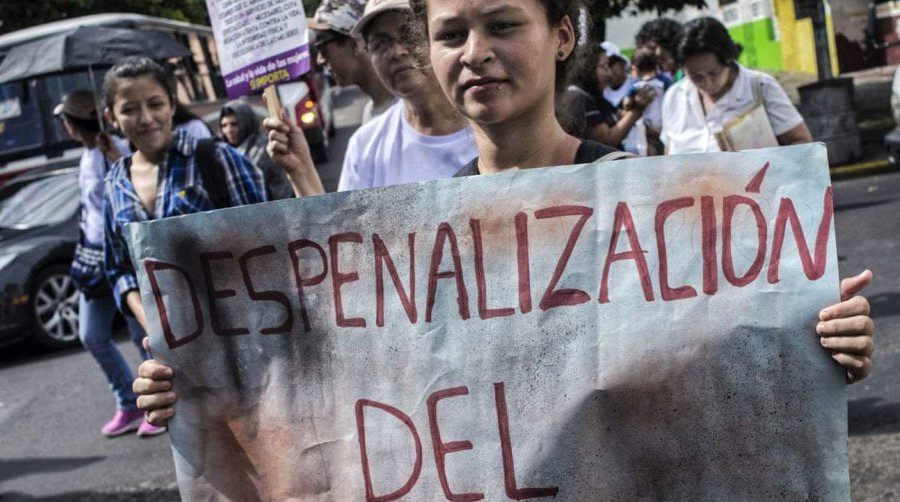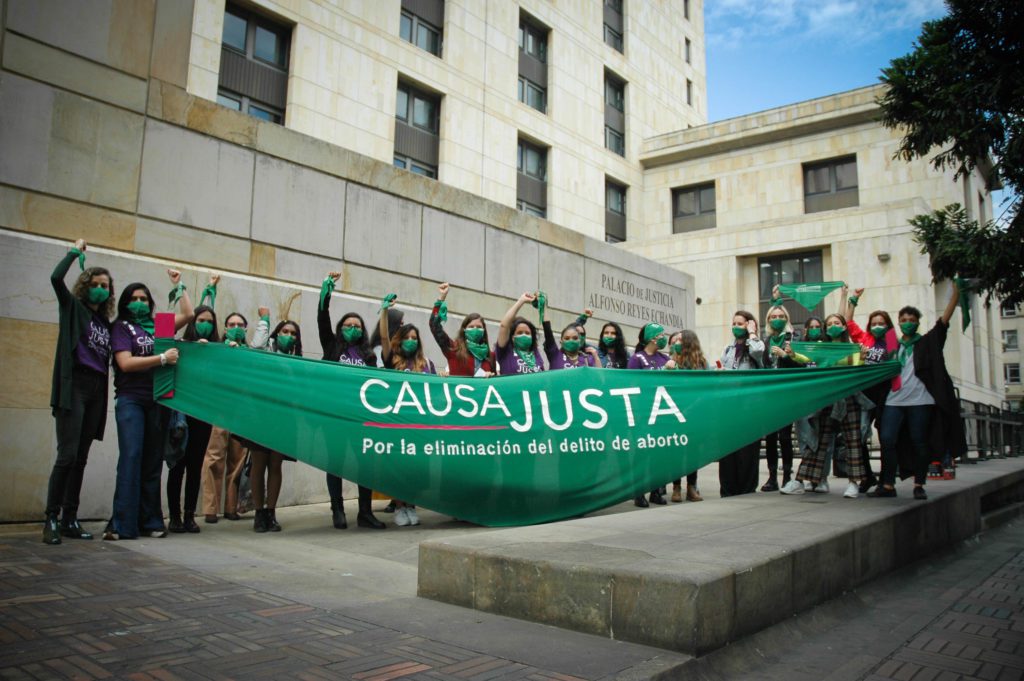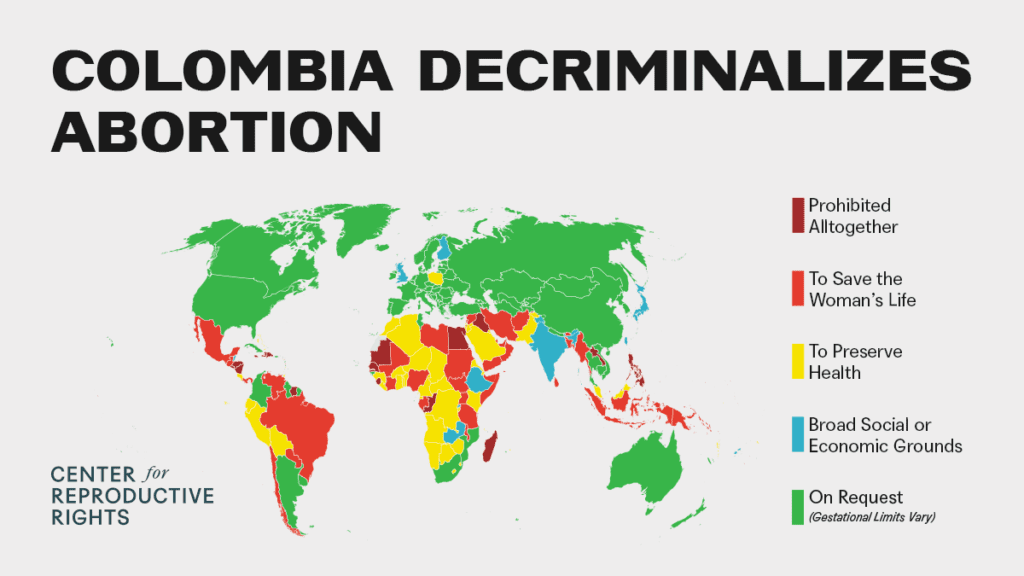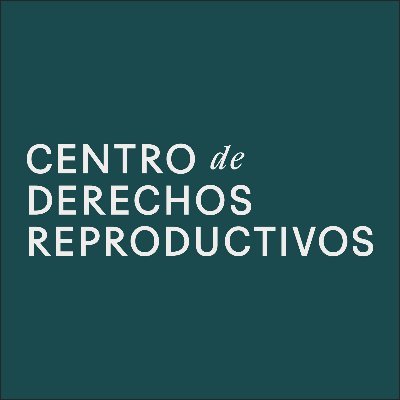Colombia’s Highest Court Rules to Decriminalize Abortion
Landmark ruling in “Causa Justa” lawsuit will help remove barriers to abortion up to 24 weeks of gestation and help end criminal prosecution of women, girls and abortion providers.

The Constitutional Court of Colombia issued a landmark ruling February 21 to decriminalize abortion up to 24 weeks of gestation, a move expected to have far-reaching impacts on the exercise of sexual and reproductive health and rights in the country.
The decision came in response to a 2020 lawsuit filed by the Causa Justa Movement, of which the Center for Reproductive Rights is a member, that sought to eliminate abortion as a crime, reduce barriers to legal abortion care, and end the risk of criminal prosecution of women and girls seeking abortion care and of health care workers providing care.
Colombia is now the eighth country in Latin America and the Caribbean to decriminalize abortion during initial stages of pregnancy, setting an important example of how to advance abortion access in the region because it is the first to have a model legalizing abortion up to 24 weeks.
Amidst cheers of women outside the Court in Bogotá, the Center’s Catalina Martínez Coral, senior regional director for Latin American and the Caribbean, told The Washington Post, “Today, women in this country have won. This is a historic decision for Latin America and the Caribbean, and will serve as a beacon for the constitutional and supreme courts of the region.”
In the 5-4 ruling, the Court decriminalized abortion until the 24th week of gestation, after which the grounds of risk to health (including mental health), rape and non-viability of the fetus without gestational limit will continue to apply. The Court also asked Congress to create regulations to apply the ruling.
“Access to abortion is essential healthcare and a human right and should not be treated as a crime. This ruling represents great progress for the people of Colombia,” said Nancy Northup, president and CEO of the Center for Reproductive Rights in a statement. “It will make a huge difference, especially for those who live in rural areas where access to abortion is hardest to secure — even in circumstances resulting from sexual violence.”
Decision Will Improve Access to Abortion Services and End Unjust Prosecution
The progress in decriminalization will break down stigmas about access to abortion, allowing information about the right to abortion to reach rural areas where there were many obstacles to care. This will most impact women living on lower incomes in rural areas who were being discriminated against under the previous exceptions model.
“This is a very important step because it recognizes autonomy and guarantees broader access,” added Martínez Coral. “However, we regret that the Court has not taken a step towards eliminating the crime considering that it is the crime itself that continues to create barriers and stigma to access. We will continue to work to make this a reality one day in Colombia.”
Lawsuit Claimed Colombia’s Strict Abortion Laws Violated Rights and Caused Harm
Prior to the Court’s ruling, abortion in Colombia was a crime with only narrow exceptions that included risk to the health or life of the pregnant woman, when the fetus is not compatible with extrauterine life, and in cases of rape and incest. However, even those qualifying under the exceptions of the law still faced cultural stigmas and barriers to access. Others who sought, received or provided abortion care were also at risk for criminal prosecution and imprisonment.
The lawsuit—which was admitted by the Constitutional Court in October 2020—was brought by the Causa Justa movement, a coalition of more than 90 organizations and 134 advocates seeking to eliminate the crime of abortion in Colombia. The Center, a member of the movement, was one of five organizations that worked to draft the lawsuit.
Although the lawsuit called for an end to the use of criminal law to regulate abortion, this ruling is a major step forward to break down barriers that prevent women, adolescents, and girls from accessing legal, safe, and timely abortion care—especially for those living in rural areas.
Causa Justa argued that Colombia’s criminalization of abortion violates the fundamental rights to health, gender equality and freedom of conscience of women and of health service providers. By violating those rights, the lawsuit argued, the government enforced stigma against abortion and encouraged the practice of unsafe abortion–which increases the likelihood of maternal morbidity and mortality; places additional burdens on migrant women; and forces health care workers to risk prosecution for providing abortion care.
Regulating abortion through a public health and human rights lens, the suit outlined, would greatly contribute to preventing complications and deaths from unsafe abortions and promote broad access to reproductive health care. It urged the State to improve its health policies to prevent deaths and complications from unsafe abortions and unwanted pregnancies and to provide access to comprehensive sexual education programs and information about contraception availability and access.
In November, the Center released a report titled “¿Cómo beneficiaría a las niñas y adolescentes la eliminación del delito de aborto en Colombia?” (“How would the elimination of the crime of abortion in Colombia benefit girls and adolescents?”) detailing how abortion decriminalization would improve the health, economic opportunities, and lifestyles of women and girls in Colombia.
Colombia Abortion Laws Historically Restrictive
The decision by the Constitutional Court of Colombia represents a significant break from the country’s long-held abortion restrictions. Before 2006, Colombia had one of the most restrictive abortion laws in the world, with a total ban on abortion and no exceptions. A Constitutional Court ruling that year deemed the ban unconstitutional and ruled that abortion must be legal in limited circumstances, including when there is a risk to the woman’s physical or mental health, when the pregnancy is the result of rape or incest, and when the fetus is inviable.
Many barriers to abortion access have persisted despite the 2006 ruling—and have actually increased during the Covid-19 pandemic. These include lack of information, misinformation, illegal requirements, misuse of conscientious objection without guaranteeing a referral, and mistreatment.
Access to safe abortion remained limited and unequal in Colombia, forcing women in vulnerable situations to access the procedure in unsafe conditions—even if they qualify under the three exceptions authorized—which has serious effects on their health.
Laws Criminalizing Abortion Have Wide-Ranging Negative Impacts
Approximately 33% of women having unsafe abortions in Colombia experience complications that require medical attention; however, one-fifth of those women do not receive the medical attention they need due to the stigma and fear associated with the criminalization of abortion.
The criminalization of abortion disproportionally affects women and girls in vulnerable situations, including those living on low incomes and in rural areas. According to the Report on the Judicialization of Abortion in Colombia of the Attorney General’s Office, 97% of the more than 4800 criminal cases of abortion in Colombia between 1999 and 2019 were against women and girls from rural areas and 30% of the cases prosecuted women who are victims of sexual or gender-based violence.
Read more:
- Causa Justa: The fight for the decriminalization of abortion in Colombia | 08.30.2021
- Center Report: “¿Cómo beneficiaría a las niñas y adolescentes la eliminación del delito de aborto en Colombia?” (“How would the elimination of the crime of abortion in Colombia benefit girls and adolescents?”) | November 2021
- Case background: Causa Justa Lawsuit to Decriminalize Abortion in Colombia (Colombian Constitutional Court)
- World Abortion Laws Map




